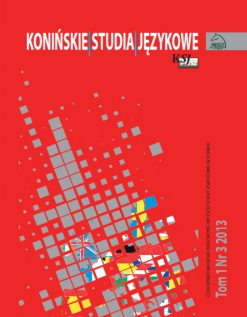Post-method principles at work: Evidence from lower primary integrated EFL education classroom in Poland
Post-method principles at work: Evidence from lower primary integrated EFL education classroom in Poland
Author(s): Anna Parr-ModrzejewskaSubject(s): Foreign languages learning, Language acquisition, School education, Pedagogy
Published by: Akademia Nauk Stosowanych w Koninie
Keywords: CLIL; postmethod pedagogy; macrostrategies; classroom discourse; lower primary;
Summary/Abstract: For hundreds of years scientists, philosophers and educators had been working to create the one ideal method of teaching and learning a foreign language. Disappointment with one construct fueled the motivation to search further until they came to a point of realization that there is no one perfect way of foreign language instruction, the point acclaimed by Kumaravadivelu (2001) as “death of a method.” Today it is universally accepted that teaching a foreign language should follow a set of principles, rather than one particular mode of instruction. Polish lower primary education is currently experiencing a major change in the system of foreign language instruction. In accordance with a recent legal regulation (Rozporządzenie MNiSW, 2019), soon the role of EFL instructors in lower primary education may be taken over by the general early years educators. As a result EFL will finally become a part of everyday teaching practice rather than a separate subject. Although the change has every potential of being beneficial for the learners, it seems essential to observe the linguistic behaviour of young learners and their teachers engaged in such mode of instruction to see how the principles work and what conditions need to be created for their optimal effectiveness. The present paper aims to present the application of Kumaravadivelu’s principles in real life classroom on the examples of students’ and their teacher’s interactions and their expected outcomes in a lower primary content and language integrated learning context.
Journal: Konińskie Studia Językowe
- Issue Year: 8/2020
- Issue No: 3
- Page Range: 319-337
- Page Count: 19
- Language: English

